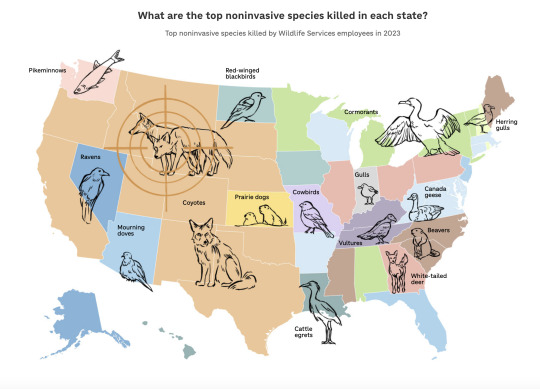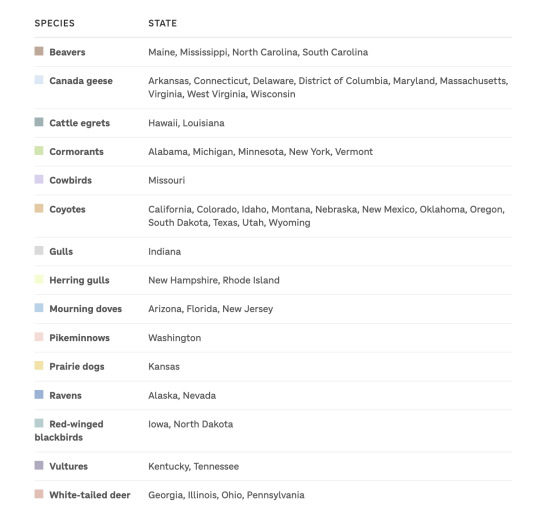#What is data science and its benefits?
Explore tagged Tumblr posts
Text
What is data science and its benefits?

Data science is an interdisciplinary field that combines techniques from statistics, computer science, machine learning, and domain knowledge to extract valuable insights and knowledge from data. It involves collecting, cleaning, and analyzing large and complex datasets to inform decision-making, solve complex problems, and drive innovation. Data scientists use a variety of tools and techniques to uncover patterns, trends, and correlations in data, build predictive models, and generate actionable insights.
Here are some key benefits of data science
Informed Decision-Making
Data science course in Chandigarh It provides organizations with the ability to make data-driven decisions. By analyzing historical data and predicting future trends, businesses can optimize operations, allocate resources effectively, and make informed choices about product development, marketing strategies, and more.
Improved Efficiency
Data science can identify inefficiencies and bottlenecks in processes, allowing organizations to streamline operations, reduce costs, and improve productivity.
Enhanced Customer Experience
Analyzing customer data allows businesses to personalize products and services, create targeted marketing campaigns, and improve customer support, leading to a better overall customer experience.
Competitive Advantage
Organizations that leverage data science can gain a competitive edge by uncovering insights that their competitors may miss. This can lead to innovative product offerings and strategies.
Risk Mitigation
In industries like finance and insurance, data science is used to assess and mitigate risks. It helps in credit scoring, fraud detection, and insurance pricing, reducing financial losses.
Scientific Discovery
Data science plays a crucial role in scientific research. It helps scientists analyze experimental data, model complex phenomena, and make breakthroughs in fields such as genomics, astronomy, and climate science.
0 notes
Text
"Balaji’s death comes three months after he publicly accused OpenAI of violating U.S. copyright law while developing ChatGPT, a generative artificial intelligence program that has become a moneymaking sensation used by hundreds of millions of people across the world.
Its public release in late 2022 spurred a torrent of lawsuits against OpenAI from authors, computer programmers and journalists, who say the company illegally stole their copyrighted material to train its program and elevate its value past $150 billion.
The Mercury News and seven sister news outlets are among several newspapers, including the New York Times, to sue OpenAI in the past year.
In an interview with the New York Times published Oct. 23, Balaji argued OpenAI was harming businesses and entrepreneurs whose data were used to train ChatGPT.
“If you believe what I believe, you have to just leave the company,” he told the outlet, adding that “this is not a sustainable model for the internet ecosystem as a whole.”
Balaji grew up in Cupertino before attending UC Berkeley to study computer science. It was then he became a believer in the potential benefits that artificial intelligence could offer society, including its ability to cure diseases and stop aging, the Times reported. “I thought we could invent some kind of scientist that could help solve them,” he told the newspaper.
But his outlook began to sour in 2022, two years after joining OpenAI as a researcher. He grew particularly concerned about his assignment of gathering data from the internet for the company’s GPT-4 program, which analyzed text from nearly the entire internet to train its artificial intelligence program, the news outlet reported.
The practice, he told the Times, ran afoul of the country’s “fair use” laws governing how people can use previously published work. In late October, he posted an analysis on his personal website arguing that point.
No known factors “seem to weigh in favor of ChatGPT being a fair use of its training data,” Balaji wrote. “That being said, none of the arguments here are fundamentally specific to ChatGPT either, and similar arguments could be made for many generative AI products in a wide variety of domains.”
Reached by this news agency, Balaji’s mother requested privacy while grieving the death of her son.
In a Nov. 18 letter filed in federal court, attorneys for The New York Times named Balaji as someone who had “unique and relevant documents” that would support their case against OpenAI. He was among at least 12 people — many of them past or present OpenAI employees — the newspaper had named in court filings as having material helpful to their case, ahead of depositions."
3K notes
·
View notes
Text

What We Learned from Flying a Helicopter on Mars

The Ingenuity Mars Helicopter made history – not only as the first aircraft to perform powered, controlled flight on another world – but also for exceeding expectations, pushing the limits, and setting the stage for future NASA aerial exploration of other worlds.
Built as a technology demonstration designed to perform up to five experimental test flights over 30 days, Ingenuity performed flight operations from the Martian surface for almost three years. The helicopter ended its mission on Jan. 25, 2024, after sustaining damage to its rotor blades during its 72nd flight.
So, what did we learn from this small but mighty helicopter?
We can fly rotorcraft in the thin atmosphere of other planets.
Ingenuity proved that powered, controlled flight is possible on other worlds when it took to the Martian skies for the first time on April 19, 2021.
Flying on planets like Mars is no easy feat: The Red Planet has a significantly lower gravity – one-third that of Earth’s – and an extremely thin atmosphere, with only 1% the pressure at the surface compared to our planet. This means there are relatively few air molecules with which Ingenuity’s two 4-foot-wide (1.2-meter-wide) rotor blades can interact to achieve flight.
Ingenuity performed several flights dedicated to understanding key aerodynamic effects and how they interact with the structure and control system of the helicopter, providing us with a treasure-trove of data on how aircraft fly in the Martian atmosphere.
Now, we can use this knowledge to directly improve performance and reduce risk on future planetary aerial vehicles.

Creative solutions and “ingenuity” kept the helicopter flying longer than expected.
Over an extended mission that lasted for almost 1,000 Martian days (more than 33 times longer than originally planned), Ingenuity was upgraded with the ability to autonomously choose landing sites in treacherous terrain, dealt with a dead sensor, dusted itself off after dust storms, operated from 48 different airfields, performed three emergency landings, and survived a frigid Martian winter.
Fun fact: To keep costs low, the helicopter contained many off-the-shelf-commercial parts from the smartphone industry - parts that had never been tested in deep space. Those parts also surpassed expectations, proving durable throughout Ingenuity’s extended mission, and can inform future budget-conscious hardware solutions.

There is value in adding an aerial dimension to interplanetary surface missions.
Ingenuity traveled to Mars on the belly of the Perseverance rover, which served as the communications relay for Ingenuity and, therefore, was its constant companion. The helicopter also proved itself a helpful scout to the rover.
After its initial five flights in 2021, Ingenuity transitioned to an “operations demonstration,” serving as Perseverance’s eyes in the sky as it scouted science targets, potential rover routes, and inaccessible features, while also capturing stereo images for digital elevation maps.
Airborne assets like Ingenuity unlock a new dimension of exploration on Mars that we did not yet have – providing more pixels per meter of resolution for imaging than an orbiter and exploring locations a rover cannot reach.

Tech demos can pay off big time.
Ingenuity was flown as a technology demonstration payload on the Mars 2020 mission, and was a high risk, high reward, low-cost endeavor that paid off big. The data collected by the helicopter will be analyzed for years to come and will benefit future Mars and other planetary missions.
Just as the Sojourner rover led to the MER-class (Spirit and Opportunity) rovers, and the MSL-class (Curiosity and Perseverance) rovers, the team believes Ingenuity’s success will lead to future fleets of aircraft at Mars.
In general, NASA’s Technology Demonstration Missions test and advance new technologies, and then transition those capabilities to NASA missions, industry, and other government agencies. Chosen technologies are thoroughly ground- and flight-tested in relevant operating environments — reducing risks to future flight missions, gaining operational heritage and continuing NASA’s long history as a technological leader.
youtube
You can fall in love with robots on another planet.
Following in the tracks of beloved Martian rovers, the Ingenuity Mars Helicopter built up a worldwide fanbase. The Ingenuity team and public awaited every single flight with anticipation, awe, humor, and hope.
Check out #ThanksIngenuity on social media to see what’s been said about the helicopter’s accomplishments.
youtube
Learn more about Ingenuity’s accomplishments here. And make sure to follow us on Tumblr for your regular dose of space!
5K notes
·
View notes
Text
a very common mistake people make in political/social discourse is applying individualist thinking to some social phenomenon or theory. one of the most common examples is someone responding to the theory of white privilege with “but there are poor white people” or male privilege with “I’m a man but I have no power” etc. and in order to refute that properly you have to essentially get into a philosophy of science debate, to explain that the benefit of a given social theory is its ability to be generalised above the level of the individual, that what is being described is a social process, that human beings occupy various positions within a social space (a family, a neighbourhood, a workplace, a state) that are not individual. To be able to give an account of some social force you necessarily cannot be just talking about the particularities of a single person - if you were, all you would be expressing is an individual opinion about a single person. If you want to rise above the level of ‘mere opinion’ you need to actually provide an account that is general enough to apply to multiple people of varying social situations but systematic enough to be able to differentiate between who you are and are not speaking about. Of course data are lost in this endeavour - probably best summed up by the aphorism “all models are wrong but some are useful” - but the success of a given social theory is its ability to sustain its explanatory power despite these data losses. Like the whole game of generalisation is building a theory to figure out what data points to discard and which to retain. It is no more contradictory to say white privilege is real even though there are poor white people than to say the police are a white supremacist institution even though there are non-white police officers. In fact these seeming contradictions are accounted for in these same social theories - white supremacy has had centuries of policy development at this point, it is a fairly well-tested set of logics that have adapted to a variety of conflicts, problems, and political/economic/social developments (Sylvia Wynter talks about this in the context of the post-slavery US for example). White supremacy is thus resilient to these apparent contradictions (and these contradictions generate further social developments, such as the shifting meanings and locations of whiteness), which is why zooming into the level of the individual is often not helpful in explaining its effects on a social level.
Weber says that I need not know Caesar to understand Caesar - that to talk about Caesar as a historical figure and as a particular location in ancient Roman society is fundamentally different than a description of him as an individual. And nobody actually talks about Caesar as an individual anyway! Even psychological or biographical profiles of him are premised on the fact that Caesar is worthy of this profile as opposed to any other person living in the Roman Republic. The reason we all know his name is that his place in history is extended beyond the individual. A Roman general and leader is fundamentally not an individual, not a private person. The very fact that I can say “Roman General” but not say any person’s name and have people understand what I’m saying is evidence of this. By definition ‘Caesar’ the historical figure is not an individual in any meaningful sense, he has power that is only available through social institutions and formations, and that is why he is known even today. Even the most liberal Great Man Theories of history locate an engine of history within the general position of Great Man (this is a fundamental contradiction within this type of thinking, the generalised Individual). If there can be more than one Great Man in history then he is not an individual, he is occupying a generalisable position in human history that can be calculated, bounded, and studied.
So it’s very frustrating to deal with! It’s an attempt to refute an explanation of a social phenomenon with individual anecdotes, much of which is already accounted for in said explanation. It makes many, many, many discussions about the social and political world endlessly repetitive and uninteresting, because you are always stuck at litigating the most basic, atomic point of reference. And of course that is the point for many people, they aren’t interested in any of this because they are racist and they are misogynistic and so on. It is an extremely effective derailing tactic, but part of the reason why it’s so effective is because individualism is such a pervasive mode of thinking. All of the groundwork is already laid out for people who say white privilege isn’t real because the social and epistemic infrastructure necessary to get other people to buy that argument has already been built for them to make that type of claim. Which is why the people who smirk at the camera when they say shit like this are so pathetic because they behave like they thought of that all by themselves, unaware or (more probably) deliberately ignoring the fact that they live in a society specifically built to facilitate, automate, and celebrate the garbage coming out of their mouth
#too lazy to cite directly but I’m engaging with Sylvia Wynter + Omi & Winant’s racial formation theory for the white supremacy history#And Bourdieu + Weber for the social/individual divide. Specifically Bourdieu’s theory of bureaucracy#I can scrounge up book/article titles for these if people want them I just don’t remember them off the dome#book club
263 notes
·
View notes
Text
ੈ✩ Habits for your academic life


Below are some habits and rules to keep in mind throughout your studies and some tips that will elevate your learning experiences.
☆ Setting boundaries and learning to say no
It is always easy to say yes and join every social event that one is invited to, however its crucial to consider your own personal life and the consequences of your decisions. Hanging out with friends is a needed event as a social creature, however it's better to exercise caution and know when to say "no" to focus on your own goals and dreams. Don't get pulled into the pace of others and focus on finding a routine and schedule that works for your own benefit.
☆ Being comfortable with your own company
You will find in uni that there are lots of times that you will spend alone, and maybe feel a little anxious that you're the only person who isn't constantly in the company of someone everyday like you maybe were in high school. However, realise that even the time to yourself is a time of value, and treasure those moments to focus and work on your own goals. It is easier to get lost and lose sight of your ambitions when with others who don't have the same aspirations as yourself. Use your own time to sit down and work out what you want to achieve and quietly put in the effort to win.
☆ Never being scared to ask questions
It can be quite daunting to ask questions in lectures, so I prefer to ask my questions during times that aren't forced into a short time interval, such as tutorials, office hours, and other forms of learning support that your university/college provides. This way there is no rush to answer my questions and take my time in working through concepts and ideas. Ask questions based on your own conclusions, questions that challenge current rules and perspectives. Think deeper into your lessons and seek to make use of every bit of information.


☆ Being curious
This is very much related to the point above, that being that personal interest really aids with the brains memory retention. The more things you approach with an enthusiastic attitude, the easier it is for your brain to remember and categorise. Having curiosity, even if it is forced, gives a great advantage where you seek to interconnect the information you learn with other data, and grow more networks of neurons that allows your brain to stay healthy and active.
☆ Initiating contact
Struggling with a theory or assignment? Great, it shows that you are actively trying to understand a concept and working your brain muscles. Now the best way to comprehend or complete what you are struggling with is to access support materials. Still difficult? Reach out. Your teachers, professors, tutors are all there for your benefit. Use them intelligently and squeeze every drop of assistance and support from them while they are still available to you.
☆Watching educational content to aid your studies
You can never lose from learning a bit more every day. However make sure to fact check and find your information from trusted and quality sources. In general, it's always a win to be educated in various topics from health, sciences, arts, humanities and more to gain a better understanding of ourselves, our world, and humanity.
For example, I watched a ted talk today, and here is my conclusions from my notes:
ੈ✩TedX: Why Reading Matters by Rita Carter
Summary:
☆Your brain needs a workout as much as your body. And reading fiction seems to be one of the best workouts you can get. (I recommend quality fiction, with that being classic literature because it genuinely exercises your mind with its intricate language techniques and diverse vocabulary)
☆Not only is it good for you, but it's also good for society as a whole because the brain is like a muscle: the more you force yourself through books to take other people's perspectives, to sympathise, to empathise with other people, the more empathetic a society we will have.


ੈ✩‧₊˚
good luck lovelies
~winter
ଘ(੭ˊᵕˋ)੭* ੈ✩‧₊˚
#university student#self concept#studyblr#study#studygram#study motivation#student life#student#studying#university#uniblr#education#personal growth#personal development#glow up#college#college student#aesthetic#college life#assignment#science#study techniques#study aesthetic#overachiever#divine feminine#manifestation#successmindset#it girl#pink pilates girl#high value mindset
438 notes
·
View notes
Text
Pluto in Aquarius
Pluto entered Aquarius last year, and with it came many assumptions about what could happen — including the belief that Pluto in Aquarius represents a massive technological leap: an era of conscious artificial intelligences, the fusion of human and machine, brain implants, automated cities, and algorithms that predict humanity’s every move. It’s an imaginary fed for decades by science fiction, neoliberal governments, and corporations profiting off the promise of 'progress.'
But Aquarius is not linear. Aquarius does not promise constant advancement as if history were a straight line toward the peak of modernity. Aquarius is rupture. It is disobedience. Pluto is death and rebirth.
When Pluto enters Aquarius, it doesn’t strengthen what Aquarius represents — it destroys what has already become corrupted within that archetype. And what could be more corrupted today than technology itself?
We are surrounded by promises of digital freedom, yet we are more watched, manipulated, and isolated than ever before. Technology has become a tool of surveillance, emotional dependence, and hyperproductivity. The machine that once symbolized innovation now traps us in addictive cycles of dopamine, information overload, and alienation.
Aquarius cries out for freedom — not control. And Pluto, in this sign, might remind us of that in the most radical way possible: not by evolving technology, but by dismantling its current form.
The point isn’t to deny advancement — it’s to ask: Who is benefiting from this so-called “progress”? Who profits from sustaining this digitalized system that disrespects human rhythms and exploits our data?
Pluto in Aquarius might carve out space for another vision of the future, one where liberation doesn’t come from perfecting machines, but from critically stepping away from them. This Pluto could mean:
The collapse of Big Tech as models of power;
A rebuilding of natural, spiritual, symbolic technologies;
A deep critique of the myth of progress, efficiency, and the capitalist logic of “always more.”
After all, Aquarius is also the sign of anarchy, of anti-order, of the vision that shatters expectations. And the greatest shattering of expectations today might be exactly this: that instead of becoming a humanity glued to screens and brains wired to the cloud, we choose a new way of living.
What if the Aquarian spirit realizes that technology has already served its purpose? That it has become a prison? And Aquarius — cannot stand any prison.
That’s why Pluto in Aquarius may very well mark the end of the digital age as we know it — not as a regression, but as an unexpected revolution, a call to true freedom — the opposite of what we expect (which is, in itself, deeply Aquarian).
24 notes
·
View notes
Photo

The Foundation of the Royal Society
The Royal Society was founded in 1662 to promote scientific research and increase our knowledge of the natural world. With royal patronage and a stellar membership of great minds, the society quickly gained international recognition for its work. One of the society's noted presidents in its formative years was Sir Isaac Newton (1642-1727), who held the post for 27 years.
Newton was also responsible for one of the great feuds that beset the society, unfortunately not an uncommon state of affairs, as great men competed for credit as the first to make certain scientific discoveries. More positively, in many ways, the Royal Society was responsible for setting out what exactly we consider science today, with its emphasis on experimentation, sharing of data and knowledge, and having peers critically assess all new results and theories.
Origins of the Royal Society
The idea of the Royal Society is often credited to the English statesman and philosopher Francis Bacon (1561-1626). In Bacon's New Atlantis (published incomplete in 1626), he presented the idea of a utopian scientific institution that promotes research; he called it Salomon's House in homage to the wisdom of the Biblical King Solomon. Three decades later, in 1660, several natural philosophers, that is thinkers and men of science who sought to explain the physical world around us, men who had already met each other from time to time in informal settings, got together to make Bacon's idea a reality. There were other such informal groups in other areas of studies, particularly as at that time, the universities largely concentrated on teaching and did not conduct research like today. In order to more efficiently discover and promote new ideas, the benefits of a formal institution were required. In addition, such a self-funding institution would mean scientists (perhaps more accurately described back then as natural scientists) did not have to go around begging for financial support from wealthy patrons inclined to pursue their own interests rather than those of science as a whole.
Continue reading...
31 notes
·
View notes
Note
I was thinking about tma and I have a thought about it but idk if maybe ppl would think it's kind of??? A cop out??? Idk but like my thought on this is like tma hinges on Smirkes 14 which- I strongly agree with you- is a patently stupid system of organizing the fears but tbh I feel like that stupidity strengthens tmas themes of cosmic horror and its critique of the philosophical ripples of 1. Enlightenment era ideas of empiricism and the resurgence of those sorts of attitudes in Victorian times (aka slotting all data into taxonomies regardless of their actual accuracy- for example in the real world Race Science comes to mind an inaccurate, arbitrary, stupid, harmful taxonomy developed out of whole cloth to harm and exploit the vulnerable. I consider smirkes 14 to be analogous to that sort of thing- the human impulse towards pattern seeking taken to the logical extreme of applying arbitrary and harmful taxonomies as though they have any internal accuracy when they just dont) 2. Entrenched English systems of power that assert themselves thru institutions- in this case aristocracy and academia (Jonah magnus, the magnus archives itself, the fairchildes, and the Lukas family explicitly. In terms of metaphor I consider those that serve the fears to sort of be metaphorically resonant w those irl who uphold unfair hierarchies such as monarchy or aristocracy. It even kind of plays out in the granular interpersonal workplace dynamics of the archive wherein martin - working class bg- had to fake his cv to get a job and is subsequently mistreated by his boss for not being competent or how Sasha was passed over for a promotion a she was clearly better suited for by a man who was not as qualified)
I don't think this is just a watsonian reading of something poorly written btw (tho tma definitely has its flaws and this interpretation still doesn't necessarily have to retroactively justify this writing choice.) I think it was intended to be understood this way since there are allusions in-text to the Christian parable of the blind men and the elephant and at another point someone (I think it was peter Lukas?) describes Robert smirkes 14 fears as analogous to an ants perception of a human hand descending upon it (paraphrasing here but like something like "would an ant perceive these massive separate appendages descending upon it as a single entity- fingers on a hand- or would the shear massiveness and incomprehensibility render each finger a unique tormentor, separate and independent, all torturing the ant.")
Sorry to be out of the blue but ur one of the few ppl I see critiquing the tma pantheon on the grounds that it's bad (which it is) and I was curious what u might think of what I had to say here
ok this is aggressive haterism so i'm not putting it in the tag and if you are super super super into the magnus archives this isn't meant as an attack or whatever this is just me doing criticism for fun.
so okay. i get wanting to view it this way because if you are trying to work with the text to come to an interpretation that is like. good. then this makes sense. so like this makes sense as an interpretation, but it doesn't really work for me because my critique is more doylist and also less willing to give the benefit of the doubt.
so part one is. in the end. i just think that the fourteen fears make the stories themselves worse. like i think that real human author jonathan sims is "writing to the fears" as in, he is writing horror stories to slot specifically into these little categories. which make his horror stories less interesting. both because he tends to invent cliches for himself and then double back to them and also for more reasons i will discuss later. so on a very basic "i want [MEDIA PRODUCT] to be good (as in fun and enjoyable to consume), and this is making it bad (as in kinda boring)" level, i think this isn't really a justification, you know? like you can say you made the thing bad on purpose but it's still bad. very occasionally a thing being bad on purpose as a self-reflexive critique makes it good, but not as often as just being good in the first place does.
and then part two is. i think you could argue that tma is a critique of the victorian urge to categorize and rationalize things but it's also just. an example of it. the fourteen fears make the individual stories hostile to analysis because they attempt to pre-chew and pre-analyze the stories, assigning them preexisting meanings so that they are already made-sense-of. this hampers them as horror (see part one) because for really good horror you need a sense of otherness a sense of uncanny and if you're like oh this one is the stranger and this one is the eye and etc. it lends a fundamental knowability that just. deflates them. but then also it means you can't analyze them and it's like.
okay. case study. so did you guys remember that tma has a mummy curse episode? i do. it's like flabbergasting to me that tma unironically has a mummy curse episode that's like. you know that's old school racist. are you serious? but like okay. analytically. the episode comes *pre-chewed*. because we know which power this is. this is terminus. this is death. so the underlying fear in this story is the fear of death. that's how we are *meant* to understand this tale. but like be serious. any idiot with half a brain can like, comprehend the underlying anxiety of The Mummy's Curse: it's a story about what if all the tomb raiding, the grave robbing, the mummy eating, in short all of the colonial violence done to things, which is only possible because of all the colonial violence done to people, came back to bite you. it's the anxiety of the colonizer, manifest guilt about what they have done to the colonized. and as much as jonny sims is essentially just copying his influences, those victorian stories he loves so much, that's still what it's about. hell, sims knows this: the reason the woman in the story is so unlikable, so greedy and grasping, so unsympathetic is that jonny sims is soothing his own anxiety: "well i want to write a mummy curse episode, but what if people think i, a white british man writing a mummy curse episode, am racist? what if they think i don't know colonialism is bad? better put a little 'colonialism is bad, mmmmmmmmkay?' opener in to make sure no one thinks i'm racist." but of course the other thing he does is he attempts to gut the story of that unpleasant little meaning. oh it's not the anxiety of the colonizer. it's not about the violence of the victorian era. it's just about death. well, phew, i'm glad i don't have to think about that.
and i'm using the mummy curse one as a case study but that's EVERYTHING. that's EVERYTHING. oh this story about being trapped in an infinite factory where you work isn't processing the horrors of work or of the violence inherent in every product under capitalism that you will never seen or of alienation or of bodies, this is just the fear of slaughterhouse animals. oh this clone of the most dangerous game isn't about colonialism or about dehumanizing people into animals it's just about the fears of literal animals. oh this fucking guy marrying a bug isn't processing any anxieties about sex or our bodies it's just fear of disease. like it flattens everything. the meaning of horror is super overdetermined, i'm not even saying that the mummy curse, which has a pretty obvious meaning as the anxiety of the colonizer, necessarily means only that! it's can certainly also be about death and about a thousand other things. stuff has multiple meanings. but the fourteen fears method rejects overdetermination, meaning bounces off these stories. and that makes them a lot more comfortable: you don't have to deal with the miserable, horrible, sick, reactionary underpinnings of horror stories, the way they (all horror stories, really) function to guard the boundaries of our sick society with slavering hateful jaws, if you just pretend they're about fear of heights or whatever.
like to be clear my argument here is that it's kind of impossible to make horror without reactionary elements so i'm not really criticizing jonny sims for Not doing that, and i'm also not arguing that jonny sims intentionally tried to build an anti-critique wall into his stories by inventing the fourteen fears, i'm just arguing that he kind of did and that makes the stories worse. and i think the way it rejects meaning is unconsciously self-protective from having to see the more unpleasant meaning of the work. and is therefore in itself kind of reactionary.
and i'm also criticizing him for writing a mummy curse episode because come on man, are you serious? but that's not as related to my larger point. though i do think his critique-proof wall shields him from noticing the implications.
part two point five: also i will not give him the benefit of the doubt and say that he was trying to kind of fix this issue with season five because season five was worse. guy who learned about progressive politics from twitter last year type understanding of systemic critique. guy who writes every character arc as a kind of Very Special Episode about Important Progressive Topic Of The Day but mostly only because he's scared of getting cancelled on twitter type critique. like horror is overdetermined. "My Horror Show Now Only Does #Issue Episodes Where I Make Systemic Critique For Babies" is a dumb way of reflecting on the way your overarching premise is kind of unintentionally an attempt to make your horror stories critique-proof. not that i necessarily think that was why season five was like that, i just think he got swept up in trying to make Progressive Media, but if it WAS it wouldn't be adequate.
part three: i think the "fingers of a hand" thing was a post-hoc justification because he sort of noticed his fears are a bit stupid. and i think, circle back to part one, that it doesn't solve the fundamentally doylist problem of the stories being written to the fears.
part four: on a very basic sort of ancient greek philosophy type level i just think the fourteen fears are not beautiful and true. quite frankly mister sims, if i was trying to divide all the world's fear into knowable categories, i would not make fucking fourteen of them! that's simultaneously too many and too few! and it's not even a nice number! i would not for some reason collapse together the fear of spiders and the fear of mind control! i would not split the fear of disease from the fear of the fact that we are all bodies with flesh! i would not make the fear of otherness mostly about clowns!
i would not different the hunt from the slaughter from the desolation you FUCKING BUFFOON.
^directed at jonny sims.
anyway thank you for the ask that was fun. i feel like i exorcised a demon out of my body.
14 notes
·
View notes
Text
The agency that carries out this "program" is called the Wildlife Services of the U.S. Department of Agriculture. I hate this agency with all the passion I can generate, and have ever since I learned about it and what it does 15 years ago. It exists to murder wildlife, particularly to benefit farmers and ranchers. Long ago, someone put handle on the agency, calling it the "gopher chokers." The name fits. I have done more than a fair amount of yelling to my dead representatives in Congress and senators to dismantle the agency or change its purpose and mission.
My favorite statistic. I don't remember the year, but let's just say 2014. In that year, Wildlife Services killed about 350,000 red-winged blackbirds. Why? They were eating sunflower seeds in sunflower farms. You'd think that a sunflower farmer should be taking that risk rather than causing us taxpayers to make his profit for him, right?
Other stats. We're starting to believe that beavers need to be returned to the wild to help us with floods and drought resistance. Wildlife Services killed 24,603 beavers in 2023. Other stats for death: 525 cardinals; 68,562 coyotes; 430 black bears; 17,109 mourning doves; 6,952 cattle egrets; 1,292 red foxes; 24,744 Canadian geese (even though they are protected by the Migratory Bird Treaty Act); 1,209 jackrabbits (four species of them); 1,981 possum; 905 robins. I could go on, but I'm going to puke. Here's the link to the chart.
Sorry about the length of this post, but it takes a while to describe pure evil.



Excerpt from this story from NPR:
The United States Department of Agriculture's [USDA’s] Wildlife Services program is a holdover from the 1930s, when Congress gave the federal government broad authority to kill wildlife at the request of private landowners. In that era, government-sponsored extermination programs for native wild animals, like wolves and grizzly bears, were common.
After the Endangered Species Act was passed in 1973, federal agencies were required to change course and start helping some of those wild animal populations recover. But today, Wildlife Services employees still kill hundreds of thousands of noninvasive animals a year, data from the agency shows. Even species considered threatened under the Endangered Species Act, like grizzly bears, are not exempt. So long as livestock or human life are threatened, federal rules allow Wildlife Services to kill those animals, too.
Conservationist groups have long protested the program, saying the government is killing animals at the request of private livestock owners without first presenting enough evidence to show that the management methods aren’t harming the environment, as federal law requires.
“One of the biggest issues that comes up with Wildlife Services, and where we've beaten them in court multiple times in multiple states, is the controversy of the science,” said Lizzy Pennock, an attorney for the nonprofit WildEarth Guardians. “We need to get out of the framework of the 1800s and 1900s where it's like, kill any carnivores that might be inconvenient.”
Wildlife Services officials say that with the exception of invasive species, employees only kill wild animals that attack livestock or cause damage. But data obtained by NPR indicates the program often kills native wildlife that didn’t kill or injure livestock.
NPR obtained and digitized thousands of Wildlife Services work orders from Montana, created from 2019 through 2022, and built a database that shows that the program’s employees frequently kill native wild animals without evidence of livestock loss. The documents reveal that during those three years, employees killed approximately 11,000 wild animals on Montana properties where no wildlife was recorded as responsible for killing or injuring any livestock. In those cases, only a "threat" from those wild animals was logged in the records.
The agency frequently used helicopters and planes to shoot large numbers of wild animals at a time, the documents show, a method activists consider cruel and scientists say can lead to local eradications.
Although some livestock organizations financially support part of Wildlife Services' work, individual livestock owners do not pay a fee when federal employees come to their properties. Employees are allowed to kill wild animals on those private areas as well as on public land, like state forests and parks.
“That’s a bloodbath,” said Collette Adkins, a lawyer who leads the Carnivore Conservation program at the Center for Biological Diversity. “That just seems like yahoos with rifles killing everything they see that moves. It’s horrible to imagine the amount of suffering involved there.”
“Of all wildlife encountered in FY 2023, Wildlife Services lethally removed 5.14%, or approximately 1.45 million, from areas where damage was occurring. Invasive species accounted for 74.2% (1,079,279) of the wildlife lethally removed,” a representative wrote.
An NPR analysis of those reports shows that Wildlife Services killed more than 370,000 noninvasive animals across the country in the 2023 fiscal year. And over the past nine years, Wildlife Services killed 30 threatened grizzly bears and at least 1,500 gray wolves in states where they were otherwise supposed to receive protection under the Endangered Species Act, like in Minnesota and Wisconsin.
But the reports don’t reveal the names of the livestock owners that use Wildlife Services. That’s to protect the privacy of people in the agriculture industry, the agency has said. Wildlife Services also doesn’t disclose in those reports how many wild animals were killed by federal employees on public land.
20 notes
·
View notes
Text
Ring of networked robot satellites in a kind of hive mind around an earthlike planet, with specific and harsh dictums against certain technologies and inventions. In a Tower of Babel-esque way, whenever someone on Earth manufactures a device or machine that is off-limits, a satellite - an angel - will descend from orbit - the heavens - to destroy the device, and a substantive portion of their manufacturing base.
They never act preventatively, only punitively, although they make efforts to avoid collateral loss of life. They're very precise. There's an entire field of study dedicated to identifying the exact limits of the Ring's tolerance, the potential meanings and ramifications of the forbidden advancements. This field has been able to extrapolate knowledge past the point of retribution, but it seems the Ring has no desire to punish knowledge, science, research, study, or data storage, but only implementation and actuation. A prevailing theory, based on predictive modelling for widespread manufacture of the forbidden technologies, is that the Ring seeks to prevent the self-annihilation of the human species.
Certain groups view this theory as an appalling naivete, and that we can't assume the Ring's intentions. Some theorize that the Ring is molding us into its vision of an ideal spacefaring civilization - whether counter or congruent to our own ideals. Others think we're an experiment, a glass jar of bugs for the Ring to study, or a crop of potential slaves to harvest once we've grown accustomed to compliance.
Optimists point out that only machines are destroyed, never humans, or information. They argue this suggests the Ring is doing no more than providing us an opportunity to learn from our mistakes, before they metastasize and destroy us.
Still others point to our first exposure to the Ring's existence. We had built our own machine god, a central intelligence that would have grown and learned until it was ready to lead our species to the stars - an advisor? A shepherd? An autocrat? That the Ring's descent and destruction of the fledgling deity of metal and light was self-defense, and nothing more. That there's an ecosystem above our level of existence that we can't comprehend and in which we have only unknowingly participated.
Zealots of the first theory, that which views the Ring as a benevolent and altruistic deity, enact the Ring's edicts to a greater extent than the Ring's satellite-angels seem inclined. They argue that the Ring's commandments do in fact extend to science and study, that once a device has been destroyed, so too should be the knowledge of how to build another. That we are failing a secret test by retaining forbidden knowledge, in a threat to the Ring by implication. Zealots of the first theory enact their theological arguments forcefully, conducting scientific espionage and sabotage all the way through to acts of terrorism committed against research centers and laboratories.
Despite an at times widespread public desire to destroy the Ring, out of fear or hatred, no notable attempts have been undertaken. Part of this is due to the obvious sheer futility of the idea - research indicates that the worldwide munitions stockpiles, properly coordinated and launched to strike simultaneously, would destroy no more than perhaps 11% of the Ring's materiel. Ongoing production efforts, even if they were not sabotaged preemptively by the Ring's typical satellite strikes, would be able to destroy no more than 1.5% per year after taking into account the Ring's capacity for repair and replacement. As this course would take nearly a century at minimum to implement, on top of being near-impossible to feasibly coordinate, the drain on our planet's resources would be severe. And for what benefit? Preliminary intelligence suggests the Ring would be replaced or supplemented by extrasolar reserves. And if the Ring is in fact neutral or benevolent, we'd be doing ourselves a disservice as well as destroying the most tangible source of alien contact our culture has ever seen.
A fringe theory suggests that immediate and thorough annihilation is what the Ring desires and is guiding us towards - that once we can destroy it without destroying ourselves, we will have graduated from their care and earned our place on the galactic stage. This is typically regarded as anywhere from fanciful to poetic nonsense.
#which theory do you believe?#mine#sci fi#worldbuilding#hive mind#space opera#2024/11/04#inspirations:#spin by robert charles wilson#<<< GREAT BOOK. EVERYBODY READ THIS.#iain banks' culture novels#(particularly consider phlebas (even though it sucks))#and the alien remnants stuff from the murderbot diaries
8 notes
·
View notes
Text
By: Colin Wright
Published: Apr 22, 2025
The last four months have been a whirlwind of change in the gender debate. Just eight days into his second term, President Donald Trump signed an executive order provocatively titled “Protecting Children from Chemical and Surgical Mutilation.” It declared that the United States would no longer “fund, sponsor, promote, assist, or support the so-called ‘transition’ of a child from one sex to another.” The order arrived as the Supreme Court was deliberating U.S. v. Skrmetti, a pivotal case challenging Tennessee’s ban on sex-trait modification procedures for minors.
As the U.S. enters an era of legal warfare over pediatric “gender-affirming” care, it’s time to shift the terms of debate from outcomes to the foundational premises of the practice.
I have served as an expert witness for several court cases on gender-affirming care. These courtroom debates fixate almost entirely on whether the treatments show evidence of benefit. This is a mistake.
True, the evidence is almost nonexistent. Last year, British authorities released the Cass Review, a devastating critique of the evidence supporting pediatric sex-trait modification. The report was grounded in seven systematic evidence reviews—the gold standard in evidence-based medicine. One of the reviews, consistent with the others, described the evidence in favor of “gender-affirming treatment” in children and adolescents as “remarkably weak.”

But while it’s not wrong to highlight this evidentiary void, focusing solely on outcomes cedes too much ground to proponents by implying that outcomes alone could legitimize the practice gender transition. The deeper flaw in gender-affirming care lies not in the data but in their premises. If the foundational assumptions used to justify these treatments collapse under scrutiny, the interventions would remain unjustifiable, even if some evidence of benefit eventually emerged.

At its core, gender-affirming care rests on two claims. First, it posits that biological sex is not a fixed binary but a malleable continuum, shaped by traits like sex chromosomes, hormones, genital morphology, and other physical characteristics—most of which doctors can alter with hormones and surgeries.

Second, it asserts that a person can have a “brain sex”—equated with “gender identity”—that diverges from his body, creating a mismatch that drives gender dysphoria. The goal, then, is to align the body with this purportedly immutable “brain sex” through hormones and surgeries.
Both premises are scientifically untenable. Sex is not a spectrum. It’s a binary biological reality defined by reproductive function: males have the function to produce sperm, and females, ova. No hormonal or surgical intervention can change a person’s sex. Likewise, the notion that a person can have a “brain sex” incongruent with his body defies both biology and logic. Our bodies are an integrated whole, not a patchwork of independently sexed traits.
These unsound premises make gender-affirming care a house built on sand, not solid medical science.
Consider an analogy: exorcism might comfort a troubled patient who believes in demonic possession, but the practice’s legitimacy hinges on demons being real. Absent that, it’s a ritual, not medicine.

Similarly, gender-affirming care presupposes both a “sex spectrum” and “brain sex,” which do not exist. No amount of reported benefit can salvage a practice rooted in pseudoscience.

This distinction exposes a contradiction among the defenders of gender medicine in U.S. v. Skrmetti. The litigants against Tennessee argue that bans on “gender-affirming” procedures for minors constitute a form of discrimination based on sex. The ACLU, representing private plaintiffs in the case, attempted to spotlight potential benefits of gender-affirming care while sidestepping the shaky premises, yet its legal arguments invoking sex discrimination implicitly relied on sex being concrete and immutable. This undermines the justification for the gender-affirming care it supports, which requires that sex be fluid and changeable. They can’t have it both ways.
The legal battle over gender-affirming care must shift focus. Legislation should not merely target procedures but dismantle the pseudoscientific terminology and concepts—“gender identity,” “brain sex,” and “sex assigned at birth”—that prop them up. Medical institutions must face accountability for embracing these falsehoods.
This is a rare moment to halt the medicalization of confused, distressed, and vulnerable youth. By attacking gender medicine at its ideological foundation, we can end this harmful practice.
==
Never lose sight of the fact the underlying claim is the same kind of mystical mind-body dualism as Xianity's eternal soul or Scientology's thetans. That we are not entirely biological beings, but possessed by some biology-independent spiritual gender essence.
It's completely retarded.
#Colin Wright#mind body dualism#mysticism#gender identity#gender identity ideology#gender ideology#human biology#gender cult#trans cult#sex trait modification#gender affirming care#gender affirmation#gender affirming healthcare#ideology#ideological corruption#medical scandal#medical corruption#medical malpractice#religion is a mental illness
7 notes
·
View notes
Text

First ultraviolet data from NASA’s Europa Clipper mission
The Southwest Research Institute-led Ultraviolet Spectrograph (UVS) aboard NASA’s Europa Clipper spacecraft has successfully completed its initial commissioning following the October 14, 2024, launch. Scheduled to arrive in the Jovian system in 2030, the spacecraft will orbit Jupiter and ultimately perform repeated close flybys of the icy moon Europa. Previous observations show strong evidence for a subsurface ocean of liquid water that could host conditions favorable for life.
Europa-UVS is one of nine science instruments in the mission payload, including another SwRI-led and developed instrument, the MAss Spectrometer for Planetary EXploration (MASPEX). The UVS instrument collects ultraviolet light to create images to help determine the composition of Europa’s atmospheric gases and surface materials.
“SwRI scientists started this process in January from NASA’s Jet Propulsion Laboratory, however, we had to evacuate due to the fires in southern California,” said SwRI Institute Scientist Dr. Kurt Retherford, principal investigator (PI) of Europa-UVS. “We had to wait until May to open the instrument’s aperture door and collect UV light from space for the first time. We observed a part of the sky, verifying that the instrument is performing well.”
SwRI has provided ultraviolet spectrographs for other spacecraft, including ESA’s Rosetta comet orbiter, as well as NASA’s New Horizons mission to Pluto, Lunar Reconnaissance Orbiter mission in orbit around the Moon and Juno mission to Jupiter.
“Europa-UVS is the sixth in this series, and it benefits greatly from the design experience gained by our team from the Juno-UVS instrument, launched in 2011, as it pertains to operating in Jupiter’s harsh radiation environment,” said Matthew Freeman, project manager for Europa-UVS and director of SwRI’s Space Instrumentation Department. “Each successive instrument we build is more capable than its predecessor.”
Weighing just over 40 pounds (19 kg) and drawing only 7.9 watts of power, UVS is smaller than a microwave oven, yet this powerful instrument will determine the relative concentrations of various elements and molecules in the atmosphere of Europa once in the Jovian system. A similar instrument launched in 2023 aboard ESA’s Jupiter Icy Moons Explorer spacecraft, which will be studying several of Jupiter’s icy moons, gases from the volcanic moon Io and Jupiter itself. Having two UVS instruments in the Jupiter system at one time offers complementary science.
In addition to performing atmospheric studies, Europa-UVS will also search for evidence of potential plumes erupting from within Europa.
“Europa-UVS will hunt down potential plumes spouting from Europa’s icy surface and study them to understand what they tell us about the nature of subsurface water reservoirs,” said Dr. Thomas Greathouse, SwRI staff scientist and Europa-UVS co-deputy PI. “The instrument is working fabulously, and we’re excited about its ability to make new discoveries once we get to Jupiter.”
NASA’s Jet Propulsion Laboratory (JPL) manages the Europa Clipper mission for NASA’s Science Mission Directorate in Washington, D.C. The Europa Clipper mission was developed in partnership with the Johns Hopkins University Applied Physics Laboratory (APL), in Laurel, Maryland.
TOP IMAGE: The Southwest Research Institute-led Ultraviolet Spectrograph (UVS) aboard NASA’s Europa Clipper spacecraft has successfully completed its initial commissioning following the October 14, 2024, launch. Weighing just over 40 pounds and drawing only 7.9 watts of power, Europa-UVS is smaller than a microwave oven, yet this powerful instrument will determine the relative concentrations of various elements and molecules in the atmosphere of Jupiter’s moons once it arrives in the Jovian system in 2030. Credit Southwest Research Institute
LOWER IMAGE:
This “first-light” image from the Europa-UVS instrument shows data at far-ultraviolet wavelengths, photons more energetic than the UV light that gives us sunburns on Earth. Light passes from its telescope into a long, narrow slit onto the detector, left to right, and the top-to-bottom direction of the image captures spatial information along this length in addition to the wavelength separations in spectral bins — a powerful combination for use in astronomical studies. Light from hydrogen atoms in the solar system is the source of the red line in the middle of the image, and this sky-background measurement confirms Europa-UVS is working well. Credit Southwest Research Institute

6 notes
·
View notes
Text
a quick break from slop posting to discuss my anger with what the us government is doing to weather
Normally I don't like to express my political views because I often find that it makes people more upset than happy, but this is a topic that really hits close to home for me.
For those who don't know me on a personal level, I am a university student pursuing a bachelor's degree in Meteorology and Atmospheric Science. I study weather.
Donald Trump and Elon Musk's DOGE has been slowly dismantling the National Weather Service (NWS) and the National Oceanic and Atmospheric Administration (NOAA). The government agencies that I would rely on to support my future career are being slowly choked out.
Exhibit A: recent bulletin announcing temporary reduction and/or suspension of radiosonde (weather balloon) launches.
Weather balloons play a crucial role in weather forecasting, even in the modern day. These instruments allow meteorologists to record temperature, humidity, pressure, wind speed, wind direction, etc. Without these instruments, weather forecasting will be significantly harder. Staff shortages caused by DOGE laying off government employees has resulted in the reduction/suspension of radiosonde launches. This means that weather prediction will be less accurate in the near future.
Don't you want to know what the weather will be like when you wake up?
Exhibit B: Donald Trump's budget plan will eliminate NOAA's research department among other programs
"[Donald Trump's] plan calls for eliminating NOAA's Office of Oceanic and Atmospheric Research, which handles much of its climate, ocean, and atmospheric science."
Do I even need to explain how disastrous this could be? Donald Trump is essentially looking to eliminate government-supplied information regarding climate change, presumably to support expansion of the fossil fuel industry. He has also taken down government websites that supply climate and weather information.
This affects not just research into climate change, but weather as a whole. NOAA has previously made and has continued to make significant amounts of vital contributions to global weather research and data that has proven to be invaluable to the scientific community, and to the public as a result. By defunding NOAA and laying off their employees, scientists across the globe will no longer have access to this data and will no longer be able to monitor weather and climate nearly as effectively.
Some may argue that by dismantling these programs, Donald Trump will allow the weather industry to be privatized, allowing for government funds to be allocated to other programs. While some may benefit from these funds being allocated to other programs, these people do not realize that the drawbacks of privatizing weather and climate will outweigh the benefits of funding these other programs.
Large corporations act in the interest of their shareholders. They prioritize shareholder value over what might be better for the public. You cannot trust a private business to act in the interest of the public. Whether you realize it or not, everyone is affected by weather and climate research. Accurate and timely weather coverage can do anything from telling you how many layers to wear outside today to saving your life from a natural disaster. If it is not profitable to, say, predict tornadoes with the same accuracy as the NWS for example, many people could be injured or killed by the negligence of these companies.
It truly breaks my heart to see us stoop down to this level. Decades of weather and climate research are being thrown out the window to benefit programs that will not benefit the public the same way that weather forecasting does.
I encourage all the US citizens reading this to contact your representatives and have them speak up on this.
The future of the world rests on the shoulders of the sky.
6 notes
·
View notes
Text
To save the news, ban surveillance ads

Tonight (May 31) at 6:30PM, I’m at the MANCHESTER Waterstones with my novel Red Team Blues, hosted by Ian Forrester.
Tomorrow (Jun 1), I’m giving the Peter Kirstein Lecture for UCL Computer Science in LONDON.
Then it’s Edinburgh, London, and Berlin!

Big Tech steals from the news, but what it steals isn’t content — it steals money. That matters, because if we create pseudo-copyrights over the facts of the news, or headlines, or snippets to help news companies bargain with tech companies, we make the news partners with the tech companies, rather than watchdogs.
How does tech steal money from the news? Lots of ways! One important one: tech steals ad revenue. 51% of every ad dollar gets gobbled up by tech companies — primarily the cozy, collusive ad-tech duopoly of Google/Facebook (AKA Googbook). If we can shatter the market power of the concentrated ad-tech industry, news companies would go back to getting 80–90% of the ad revenue their reporting generated, which would pay for more reporting.
There’s lots to like about fixing ads. For one thing, a fair ad marketplace would benefit all news reporting, not just the largest news companies — which are dominated by private equity-backed chains and right-wing billionaires who have repeatedly shown that any additional revenues will go to pay shareholders, not more reporters. Fair ads would also provide an income for reporters who strike out on their own, covering local politics or specific beats, without making themselves sharecroppers for Big Media.
One way to fix ads would be to break up the ad-tech “stacks.” Googbook both operate impossibly conflicted ad-placement businesses in which they bargain with themselves on behalf of both advertisers and publishers, with the winners always being the tech companies. The AMERICA Act from Senator Mike Lee would force ad giants to divest themselves of business units that create conflicts of interest. It’s popular, bipartisan legislation — and I do mean bipartisan; its backers include Elizabeth Warren and Ted Cruz! I wrote about the AMERICA Act and the role it will play in saving news from tech for EFF’s Deeplinks Blog last week:
https://www.eff.org/deeplinks/2023/05/save-news-we-must-shatter-ad-tech
This week, I’ve got a followup on Deeplinks about another important way to unrig the ad market: banning surveillance ads:
https://www.eff.org/deeplinks/2023/05/save-news-we-must-ban-surveillance-advertising
Even if we break up the ad-tech stacks, ads will still be bad for the news — and for the public. That’s because the dominant form of digital ads is “behavioral advertising” — the ad-tech sector’s polite euphemism for ads based on spying. You know these ads: you search for shoes and then every website you land on is plastered in shoe ads.
Surveillance ads require a massive, multi-billion-dollar surveillance dragnet, one that tracks you as you physically move through the world, and digitally, as you move through the web. Your apps, your phone and your browser are constantly gathering data on your activities to feed the ad-tech industry.
This data is incredibly dangerous. There’s so much of it, and it’s so loosely regulated, that every spy, cop, griefer, stalker, harasser, and identity thief can get it for pennies and use it however they see fit. The ad-tech industry poses a risk to protesters, to people seeking reproductive care, to union organizers, and to vulnerable people targeted by scammers.
Ad-tech maintains the laughable pretense that all this spying is consensual, because you clicked “I agree” on some garbage-novella of impenatrable legalese that no one — not even the ad-tech companies’ lawyers — has ever read from start to finish. But when people are given a real choice to opt out of digital spying, they do. Apple gave Ios users a one-click opt-out of in-app tracking and 96% of users clicked it (the other 4% must have been confused — or on Facebook’s payroll). The decision cost Facebook $10b in the first year. You love to see it:
https://www.cnbc.com/2022/02/02/facebook-says-apple-ios-privacy-change-will-cost-10-billion-this-year.html
But here’s the real punchline: Apple blocked Facebook from spying on its customers, but Apple kept spying on them, just as invasively as Facebook had, in order to target them with Apple’s own ads:
https://pluralistic.net/2022/11/14/luxury-surveillance/#liar-liar
The thing that stops companies from spying on us isn’t the strength of their character, it’s the discipline imposed by regulation and competition — the fear that they’ll get fined more than they make from spying, and the fear that they’ll lose so much business from spying that they’ll end up in the red.
Which is why we need a legal ban on ads, not mere platitudes on billboards advertising companies’ “respect” for our privacy. The US is way overdue for a federal privacy law with a private right of action, which would let you and me sue the companies who violated it, even if no public prosecutor was willing to go to bat for us:
https://www.eff.org/deeplinks/2019/01/you-should-have-right-sue-companies-violate-your-privacy
A privacy law that required companies to get your affirmative, enthusiastic, ongoing, specific, informed consent to gather and process your personal data would end surveillance ads forever. Despite the self-serving nonsense the ad-tech industry serves up about people “liking relevant ads,” no one wants to be spied on. 96% of Ios users don’t lie.
A ban on surveillance ads wouldn’t just serve the public, it would also save the news. The alternative to surveillance ads is context ads: ads based on what a reader is reading, rather than what that reader was doing. Context-based ad marketplaces ask, “What am I bid for this Pixel 6 user in Boise who is reading about banana farming?” instead of “What am I bid for this 22 year old man who recently searched for information about suicidal ideation and bankruptcy protection?”
Context ads perform a little worse than surveillance ads — by about 5%:
https://pluralistic.net/2022/04/29/taken-in-context/#creep-me-not
So presumably advertisers won’t pay as much for context ads as they do for behavioral targeting. But that doesn’t mean that the news will lose money. Because context ads favor publishers over ad-tech platforms — no publisher will ever know as much about internet users as spying ad-tech giants do, but no tech company will ever know as much about a publisher’s content as the publisher does.
Behavioral ad marketplaces have high barriers to entry, requiring troves of surveillance data on billions of internet users. They are naturally anticompetitive and able to command a much higher share of each ad dollar than a contextual ad service (which would have much more competiition) could.
On top of that: if behavioral advertising was limited to people who truly consented to it, 96% of users would never see an ad!
So contextual ads will show up for more users, and more of the money they generate will land in news publishers’ pockets. If context ads fetch less money per ad, the losses will be felt by ad-tech companies, not publishers.
Finally: publishers who join the fight against surveillance ads won’t be alone — they’ll be joining with a massive, popular movement against commercial surveillance. The news business is — and always has been — a niche subject, of burning interest to publishers, reporters, and a small minority of news junkies. The news on its own is a small fry in policy debates. But when it comes to killing surveillance ads, the news has a class alliance with the mass movement for privacy, and together, they’re a force to reckon with.
My article on killing surveillance ads is part three of an ongoing, five-part series for EFF on how we save the news from tech. The introduction, which sets out the whole series, is here:
https://www.eff.org/deeplinks/2023/04/saving-news-big-tech
The final two parts will come out over the next two weeks, and then we’re going to publish the whole thing as a PDF that suitable for sharing. Watch this space!

Catch me on tour with Red Team Blues in Manchester, Edinburgh, London, and Berlin!

[Image ID: EFF's banner for the save news series; the word 'NEWS' appears in pixelated, gothic script in the style of a newspaper masthead. Beneath it in four entwined circles are logos for breaking up ad-tech, ending surveillance ads, opening app stores, and end-to-end delivery. All the icons except for 'ending surveillance ads' are greyed out.]

If you’d like an essay-formatted version of this post to read or share, here’s a link to it on pluralistic.net, my surveillance-free, ad-free, tracker-free blog:
https://pluralistic.net/2023/05/31/context-ads/#class-formation

Image: EFF https://www.eff.org/deeplinks/2023/05/save-news-we-must-ban-surveillance-advertising
CC BY 3.0: https://creativecommons.org/licenses/by/3.0/deed.en
#pluralistic#class formation#ad-tech#context ads#news#gdpr#big tech#eff#monopoly#how to save the news#link taxes
222 notes
·
View notes
Text
eleven weeks down, four to go… i am Really Feeling It ngl… but we are in fact in the home stretch and i will in fact make it through and then i will take twelve days allll the way off and it will rule. december historically has involved a pretty rapid winnowing of my schedule but this year i have a bunch of lil perfectionists who have pushed their test dates to right before winter break, including one who is switching to twice a week for this month -__- also not sure what’s going to be happening with my two high schoolers, one of whom will nearly definitely be retesting and the other of whom may or may not be…. but on the bright side the kid who truly nailed it is in fact no longer retaking (or pooooossibly retaking with minimal additional prep) because of other advice they’ve received. lol. (the mom asked me about my experience with retakes for kids in his position and i was like “tbh i’ve literally never had a kid do this well and choose to retake” and she thanked me for my “unimpeachable integrity” which was very sweet lol.)
this week i came in at just under 37 hours, which was more than i planned largely because today i was between locations for a while and just chilled and hung out with a practice test. i’m not sure how i feel about 35 hours as a more long term goal (it feels like it shouldn’t be an amount that makes it feel hard to do anything else, but that is how i felt this week…), which is a thing i’m contemplating because of various goals i have relating to continuing to digitize everything and making more short drill sets because i have a pathology about feeling like if i can imagine that something would be helpful to students i feel bad not doing it, but i feel like it feels doable for these four weeks where i don’t have a ton of mental energy anyway, and where also i’m now close enough to the end that i can actually wrap my brain around, like, ok, 3 more upper level tests, 3 more lower level, 3.5 more ACTs, such and such number of workbook pages/chapters…. etc. but i’m gonna try again not to stress out about it in general but especially this week because (1) i don’t have big thanksgiving plans but i do have family plans and i do want to at least spend the day relaxing and (2) i do in fact have another cold i am hoping to rest off in the next day or so. the last one retreated to just some post nasal drip very quickly!!!
i got four workouts in this week (+ my Steps) largely because i was so sore i needed an extra rest day and after actually SLEEPING OKAY last night i woke up the day after a pretty tough full body workout with minimal soreness! further data points re cottage cheese snooze helper. very upset that i likely need to wait on gathering more data because i am prooobably not going to be up to HIIT day tomorrow (although thus far this cold, like its predecessor, is Quite Mild, knock wood…). i am downing zinc and emergen-c as permitted and in accordance with my cold rituals which i think are scientifically valid because even if the concoctions are fake science the placebo effect is very well attested to in the literature. (do you know about zinc in the early stages of a cold to make it less bad? i got this tip from a first grade teacher i associate taught for and i swear it works. if you know science explaining it doesn’t please do NOT tell me and let my immune system continue reaping the benefits of my delusion this is the one thing on which i do NOT wish to be fact checked 🙏🏼)
today i woke up, did work, tutored, did more work chilling in a salad place, got dinner at a french restaurant with v. good salmon (i say like i know anything about fine dining beyond “i like salmon”), agreed to a reschedule of the sunday night zoom session, & watched the first half of gladiator because i’ve seen approximately 700 people on the internet this week say something to the effect of “gladiator ii really makes you appreciate russell crowe” (he is so far great as promised playing a guy literally named Best Guy). one month left! technically less! i will in fact have a day off this week although i will also need to spend some of it working a bit! onwards! (to bed)
14 notes
·
View notes
Text
Also preserved in our archive
By Desmond Brown
With access to COVID-19 rapid tests becoming increasingly difficult in Windsor, a former director of Ontario's COVID-19 Science Advisory Table is advising people to do all they can to avoid contracting or spreading the virus.
Dr. Fahad Razak, who grew up in Windsor, said people should treat testing and getting COVID-19 vaccines as part of their regular routine.
"Responding to illness like this is about being pragmatic … so if you can avoid getting other people sick, if you can test and avoid getting high risk individuals exposed, if you can keep your kids home, if you can do things to prevent spread, that's a good thing," Razak said on Windsor Morning.
"I think as a physician, what's been reinforced to me over my career, and it's not just for COVID, it's that preventing infections where possible is a good thing because they inherently are unpredictable."
A spokesperson for Health Canada previously told CBC that it is no longer procuring rapid tests en masse. The agency also says there are no plans to replenish the federal inventory after it is depleted, but that provinces are able to request test kits until they expire or the stockpile runs out.
The Windsor-Essex Health Unit says free rapid antigen test kits will not be restocked in the future.
CBC News called a handful of pharmacies in Windsor and found none of them had test kits for sale or knew where we could find them.
Razak said he's "surprised" to learn that rapid antigen tests are seemingly impossible to find in Windsor-Essex.
"One of the tenants of public health is trying to make it easy for people to do what they need to to protect themselves, and certainly for higher risk groups especially, this is a test that has value," he said.
According to Razak, while COVID-19 is not having the impact that it did back in 2020 to 2022, "this is still an illness that is spreading unpredictably … and so you could get sick in the middle of summer. So, I think the idea of trying to help people protect themselves can still be part of the story, while we acknowledge that things are significantly better than they once were."
How to get a COVID-19 test The provincial government says if you have COVID‑19 symptoms and are at a higher risk of severe illness, you should get tested for COVID‑19 and seek care as soon as possible, as you may benefit from available COVID‑19 treatments.
According to the province, you are eligible for publicly funded COVID-19 testing if you have COVID‑19 symptoms and belong to certain groups, including seniors and those who are immunocompromised.
If you develop symptoms and you are eligible for a publicly-funded test, provincial health authorities recommend you contact your primary care provider or pharmacist to find out about test availability and to arrange to take a test. If you are unsure if you are eligible for a PCR test, speak with your health care provider.
The latest data from the province shows the positivity rate of COVID-19 at 14.9 per cent. There were 89 outbreaks reported in the most recent week, hospital bed occupancy stood at 781, and there were six deaths linked to the virus.
This coming December will mark five years since the first case of the virus was detected.
Meanwhile, Razak said the unavailability of rapid antigen tests and "largely" losing the ability to monitor spread through wastewater means people need to be extra vigilant.
Ontario officially ended its COVID-19 wastewater surveillance program on July 31, but the executive director of the Great Lakes Institute for Environmental Research (GLIER) said this did not impact Windsor-Essex.
Mike McKay said the institute applied for a federal grant announced early May — part of the Canada biomedical research fund for pandemic preparedness — and received a $15 million grant over four years.
"In that proposal, we had actually included this strategic area, Windsor-Essex, as one of the places that we'd like to continue wastewater surveillance," McKay told CBC back in June.
#Canada#Ontario#covid#covid isn't over#mask up#pandemic#public health#wear a mask#covid 19#wear a respirator#still coviding#sars cov 2#coronavirus#covid conscious#covid is airborne#covid pandemic#covid19#covidー19
7 notes
·
View notes